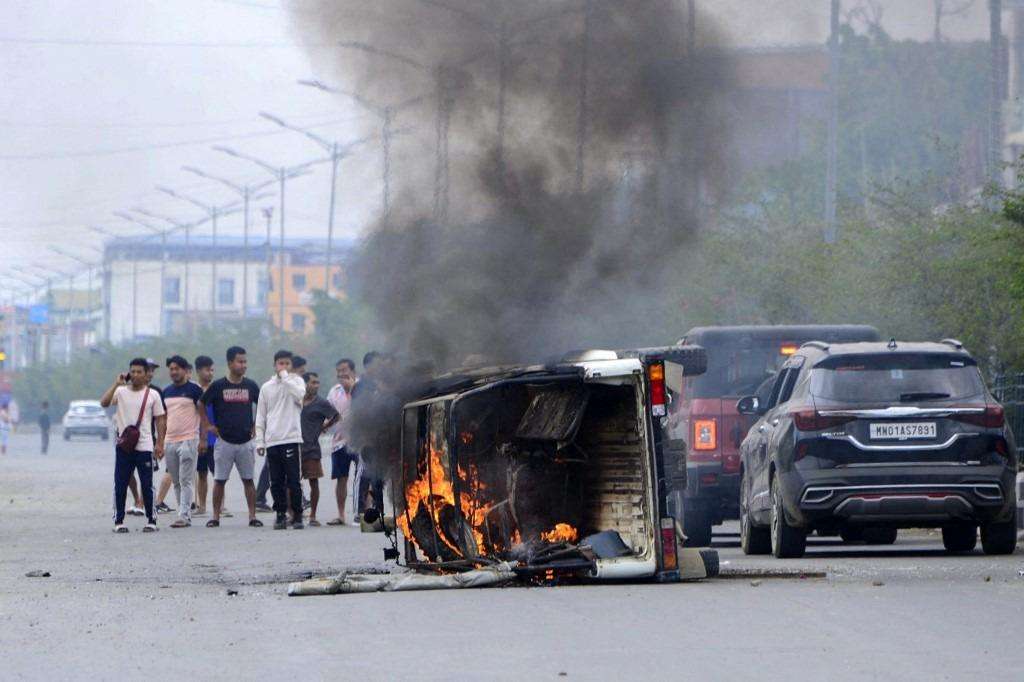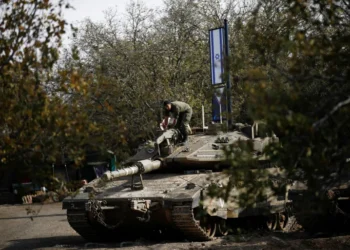The ongoing violence in Manipur, the northeastern part of India, has mainly to do with class. Buildings have been set ablaze and burnt automobiles scattered over roadways in the northeast Indian state, leaving at least 58 people dead and tens of thousands homeless.

Officials’ constant appeals for calm, have been ineffective, forcing the Indian army to deploy soldiers in an attempt to restore law and order, and authorities are forced to block internet access in the state, with about 3 million residents.
Manipur residents claimed that, law and order has broken down. The state government, led by India’s Hindu-nationalist ruling Bharatiya Janata Party (BJP), issued “shoot-at-sight” orders for “extreme” cases in the previous week. The army declared that, it has significantly enhanced” its surveillance in the state.
Officials have claimed to be putting matters under control, but as the disturbance reaches its second week, the atmosphere remains hostile in a complex, ethnically diverse, and divided region, that has faced insurgencies, bloodshed, and marginalization for decades.
Manipur, a lush, hilly state bordering Myanmar, has a long history of civil warfare dating back to the foundation of modern India. The state is home to a diverse ethnic group of Sino-Tibetan communities, each with its own language, culture, and religion.
It was previously a princely state under British domination, and was only absorbed into India in 1949, two years after India earned independence from its erstwhile rulers.
Many in the state were opposed to the move, claiming it was rushed and executed with no adequate consensus. Since then, the region has faced violent insurgencies as well as ethnic warfare, resulting in hundreds of deaths and injuries. The latest wave of violence in Manipur, is among the deadliest in decades.
What Ignited The Clashes

Last week, thousands of people from the Naga and Kuki tribes took part in a march against the dominant Meitei ethnic group, being granted special status under India’s “Scheduled Tribe” classification.
The Meitei community, a predominantly Hindu ethnic minority that accounts for almost half of the state’s population, has long agitated for recognition as a scheduled tribe, which would grant them access to broader advantages such as health care, education, and government jobs.
Scheduled tribes have historically been among the most socio-economically disadvantaged communities in India. They have been refused access to education and job prospects, and these have encouraged the government to acknowledge selected groups in an attempt to right years of wrongdoing.

Other ethnic groups, many of whom are Christian, say they fear they will not have a fair shot for jobs and other benefits, if the Meitei community is granted scheduled tribe status. The disputes became violent, with enraged mobs torching properties. According to eyewitnesses, homes and churches have been burned as terrified families escape affected areas.
“Unfortunately, what we are witnessing here appears to be a very systematic, well-planned series of attacks.” “The execution is almost clinical, and they know exactly where tribal community members live,” a tribal leader in Imphal averred.
“I barely made it… The mob had already entered the house. I scaled the fence to the neighbor’s house. I only brought my laptop bag to this camp. “I’m out of ideas.”
The ethnic and political division between the Meiteis and the other ethnic groups cut across political and geographical line. Though, the recent clashes are believed to be the result of demonstrations last week, rivalry between the two groups have been brewing for years over a different concerns, including land rights and a crackdown on minority groups.

The Meteis occupies the majority of positions in the state administration, and have benefited from more economic and infrastructure growth than other ethnic groups. They usually occupy the more developed but geographically smaller Imphal Valley, whilst the Naga and Kuki groups, live mostly in the agriculturally rich but larger covered hill regions.
READ ALSO: Stop Floggings, Execution of Afghans, U.N Urges Taliban




















